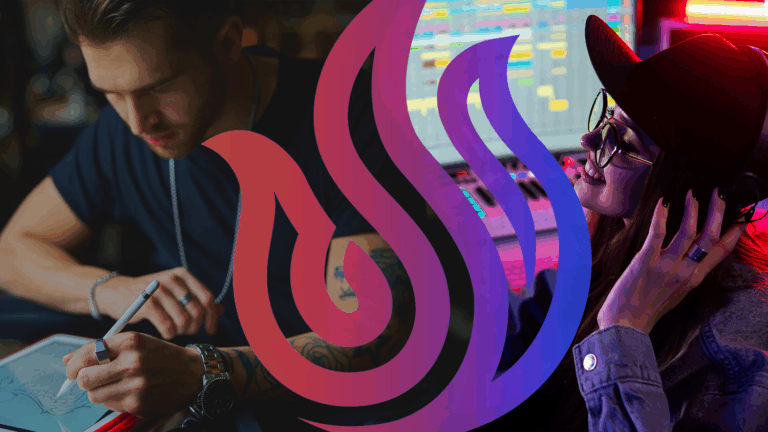If you’re interested in becoming a video game designer (coolest job ever!), you may wonder, will AI replace humans in game design?
Don’t panic!
While it’s true that Artificial Intelligence (AI) is reshaping industries and revolutionizing the way we live and work, video game design, a field rooted in creativity and innovation, will always need a human touch. Video game designers can utilize AI to make them more efficient and automate tedious, manual tasks, but AI won’t be taking over their jobs anytime soon. Here are some compelling reasons why.
AI Lacks Creativity
First and foremost, creativity is a distinctly human trait, and it’s at the heart of every great video game. AI, despite its remarkable abilities, lacks our innate sense of imagination. Video game design is not just about coding algorithms or generating random assets; it’s about telling compelling stories, creating immersive worlds, and eliciting emotions from players. These aspects require a deep understanding of human experiences and emotions, something that AI, no matter how advanced, can’t replicate. Game developers draw inspiration from their surroundings, emotions, and life experiences – something AI can’t do.
Humans Can Collaborate
Additionally, game designers, artists, writers, and programmers work together, combining their diverse skills and expertise to bring a game to life. AI can certainly aid in specific tasks, such as procedural content generation or optimizing game mechanics, but it can’t replace the collaborative energy and dynamic brainstorming that occur when creative minds come together. When human creativity and AI’s computational power join forces, we see more intricate, engaging, and visually stunning games.
Humans Understand Cultural Trends
Furthermore, the gaming industry is driven by trends, player preferences, and cultural influences, all of which are constantly changing. Human designers possess the ability to adapt, anticipate shifts in player expectations, and respond to cultural nuances, ensuring that games remain relevant and appealing. AI, on the other hand, lacks the understanding of human culture and societal dynamics necessary to create games that truly resonate with diverse audiences. Human designers are adept at capturing the essence of different cultures, crafting narratives that are respectful, inclusive, and authentic.
AI Doesn’t Understand Human Emotions
Gamers seek experiences that challenge their intellect, emotions, and skills, which means games need the human touch. Game developers not only craft intricate levels and gameplay mechanics but also design characters with depth, each with their own unique traits, backgrounds, and stories. Understanding the subtleties of human emotions and psychology is crucial in creating characters that players can empathize with, characters that evolve and grow just like real people.
Humans are Full of Surprises
One of the most fun parts of gaming is its capacity to surprise and innovate. Game designers are masters of surprise, injecting unexpected plot twists, challenges, and hidden Easter eggs that delight players and keep them engaged. This element of surprise is deeply rooted in human intuition, something AI, bound by algorithms and patterns, struggles to replicate.
AI Doesn’t Get Social Commentary
Video games often serve as a reflection of society, tackling complex themes and moral dilemmas. Human designers possess the ability to address sensitive topics with nuance and respect, encouraging players to confront real-world issues within the safe confines of a virtual environment. By incorporating social commentary, game developers have the power to provoke thoughtful discussions and challenge societal norms. AI lacks the inherent understanding of human society and ethics needed to navigate these subjects.
Humans Can Respond to Player Feedback
Let’s not forget the importance of player feedback in the iterative process of game design. Players provide invaluable insights, pointing out flaws, suggesting improvements, and sharing their experiences. Game developers, as humans themselves, can empathize with player frustrations and joys, leading to game enhancements that cater to the player’s desires. This dialogue between players and developers fosters a sense of community, transforming games into living, breathing entities that evolve with the players’ needs and expectations.
In essence, AI is a powerful tool that amplifies the creative capacities of human designers. It expedites certain aspects of game development, making processes more efficient and freeing up time for developers to focus on what they do best: dreaming, innovating, and telling stories. AI and human creativity are not competitors; they are collaborators, working in harmony to push the boundaries of what gaming can achieve.
Prepare for Your Dream Career at USV
Becoming a video game designer requires a combination of passion, creativity, technical skills, and industry knowledge. If you dream of becoming a video game designer and creating amazing and memorable characters, University of Silicon Valley can help you turn that dream into reality.
We can help prepare you for success in the creative-technology industries by providing a real-world education inspired by the entrepreneurial spirit of our Silicon Valley location. We also offer our courses in Game Design and Development online.
Check out our renowned Bachelor of Arts in Game Design program, and apply now, request more info, or come visit our campus. Get ready to take your gaming skills to the next level.


